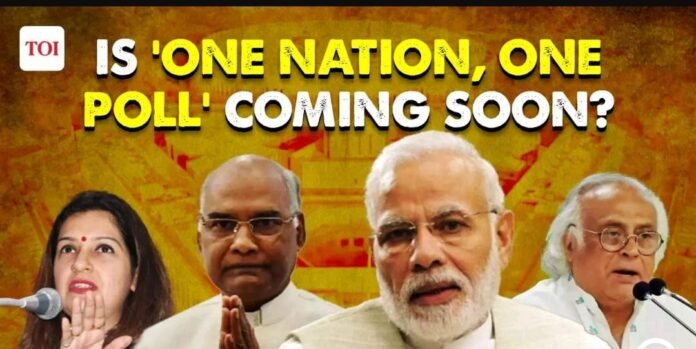The Indian government has taken a significant step towards reforming the country’s electoral process by establishing a dedicated committee to work on the “One Nation, One Election” legislation. This initiative aims to synchronize all elections in the nation, including those for the Lok Sabha, state assemblies, and local bodies, to occur simultaneously. The formation of this committee marks a pivotal moment in India’s political landscape and could have far-reaching implications for the country’s democracy.
The committee, comprised of experts from various fields, including law, politics, and administration, will undertake the complex task of drafting the legislation required to implement the “One Nation, One Election” concept. The primary objective of this reform is to reduce the frequency of elections, which often disrupt governance and divert resources away from developmental projects.
By aligning elections, the government hopes to bring about several benefits. First and foremost, it would reduce the burden on the public, as citizens are currently subjected to frequent elections at various levels of government. This can lead to voter fatigue and decreased participation in the electoral process. Additionally, the cost of conducting elections is astronomical, and consolidating them would result in significant savings for both the government and political parties.
Furthermore, “One Nation, One Election” could promote better policy implementation. With synchronized elections, governments would have a longer tenure, providing more stability for policy execution. Currently, the model code of conduct during elections hampers the government’s ability to make important decisions, as it restricts the introduction of new policies and projects.
However, the “One Nation, One Election” proposal is not without its challenges. Coordinating elections across diverse states with varying political landscapes and schedules is a complex task. There is also the issue of whether state governments should be dissolved prematurely to align their elections with the national schedule.
Overall, the establishment of the committee signals the government’s commitment to electoral reform and its recognition of the potential benefits of synchronized elections. As the committee begins its work, it will engage in extensive consultations with various stakeholders, including political parties, to ensure that the legislation is well-considered and balanced. The coming years will be critical in shaping the future of India’s electoral process, and the “One Nation, One Election” initiative is poised to be a focal point of this transformation.

